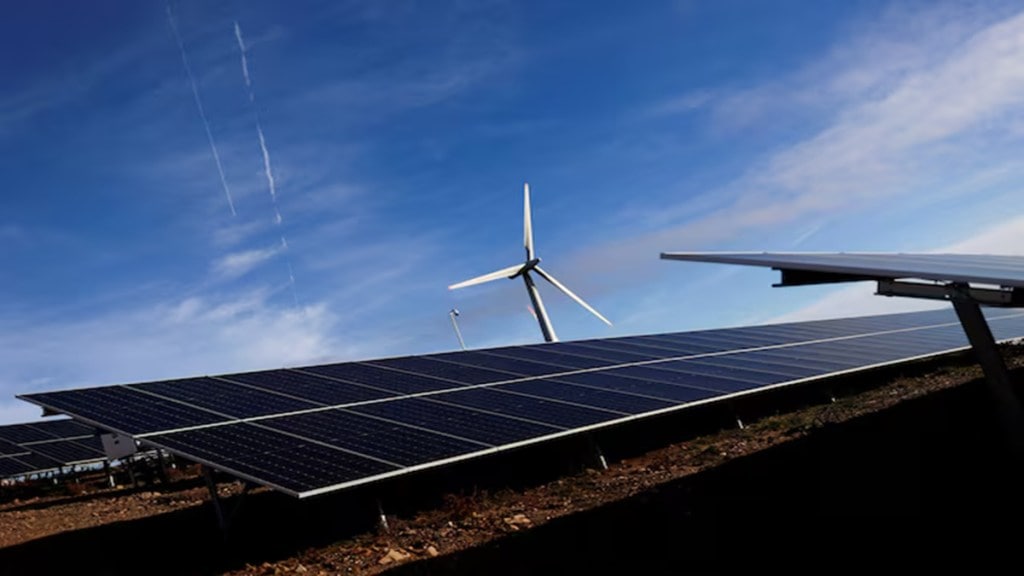Mahesh Apte (name changed), owner of a Pune-based MSME, had been considering a rooftop solar installation for quite some time now, but faced limitations due to a lack of financial service providers and time-consuming disbursal processes.
Enter Ecofy, a green-only non-banking financial company (NBFC) that provides financial solutions for the electric vehicle (EV), solar, and SME sectors. “Ecofy assisted me with financing to install solar panels on my rooftop. Their loan process was seamless— simple and fully digital. With a very quick approval process, I faced no issues in getting the loan approved,” Apte said.
Platforms like Ecofy are focusing on ‘green finance’— which essentially represents the allocation of capital toward projects and technologies that benefit the environment— building on the belief that climate action and financial growth can go hand in hand.
It’s a ‘necessity’ that even the government is accepting. At a conference earlier this year, Union Environment, Forest and Climate Change Minister Bhupender Yadav acknowledged that green finance is no longer a niche sector, as it now forms the “backbone of resilient, competitive economies”.
“Green finance is about restructuring the flow of capital so that every investment in infrastructure, industry, transport or agriculture contributes to sustainability rather than undermines it,” the minister stated.
Green finance also underpins India’s transition to a low-carbon economy. “With national commitments to achieve net-zero emissions by 2070, reduce carbon intensity by 33-35% from 2005 levels and generate 50% of electricity from renewables by 2030, the outlook for green finance in India is exceptionally robust,” said Saket Mehra, partner, auto and EV industry leader, Grant Thornton Bharat.
Instruments and a massive funding gap
But what exactly is green finance? “It encompasses a spectrum of instruments—green bonds, sustainability-linked loans, insurance products, carbon markets, and ESG-focused funds—each designed to finance initiatives that conserve natural resources, enhance energy efficiency, mitigate emissions, and strengthen climate resilience,” explained Mehra.
The scale of growth is striking—issuance of green bonds in India surged from $1.2 billion in 2013 to $21 billion in 2023, signaling strong investor confidence and regulatory support, added Mehra.
Shifting from Institutional Capital to Retail Adoption
What’s noteworthy now is the shift from institutional to retail participation. Ecofy, for instance, is making access to ‘green finance’ simple, affordable and inclusive. “Our portfolio spans the entire EV ownership lifecycle, the solarisation of homes and small businesses, and sustainable financing solutions for SMEs—all designed to drive measurable environmental impact and long-term savings,” said Shraboni Fernandes, head, marketing, Ecofy.
Leading this charge are young adults, especially millennials and Gen Zs, who now consider sustainability a financial priority. “For them, sustainable choices are smart financial decisions, not sacrifices. For example, buying an electric two-wheeler isn’t just about being eco-friendly, it’s about lower operating costs, reduced maintenance, and long-term savings,” added Fernandes, whose company closed FY2025 with a 2.5x year-on-year growth.
At Ecofy, the average ticket size ranges between Rs 1.7 lakh and Rs 2.2 lakh, and the company has a pan-India presence spanning 500 cities. “To date, our financing activities have contributed to carbon emission savings of over 4,23,049 tonne, reflecting the tangible environmental impact of our 100% green portfolio,” said Fernandes.
According to Madan Sabnavis, chief economist, Bank of Baroda, green finance is still new but holds a lot of potential. “The pricing of such finance is the issue as it needs investors or suppliers of funds to accept lower interest rates or returns. Today, it is more of impact investors or CSR funds of corporates which are being used for creating a greener economy. But given the amount required, green finance has to pick up,” he added.
Sabnavis is right. According to a July 2025 report published by Deloitte, India would require about $1.5 trillion in investments by 2030 to address climate change and to boost its initiatives for energy transition. The report, titled ‘The Climate Response: Tapping into India’s Climate and Energy Transition Opportunity’, highlights the scale of capital needed across renewable energy, biofuels, decarbonisation efforts, and sustainable infrastructure to meet the country’s climate goals.
Deloitte also stated that the country will require an investment of $200-250 billion to reach the government’s target of 500 GW of non-fossil capacity by 2030 to work on areas such as advanced manufacturing, grid integration and system expansion.
“This gap ensures green finance will remain a strategic priority for capital markets,” added Mehra of Grant Thornton Bharat.

